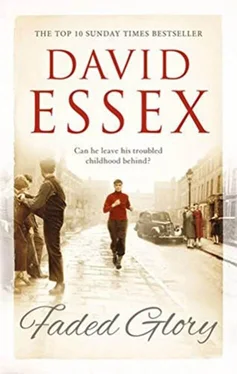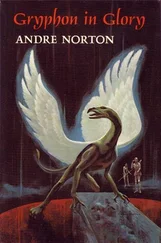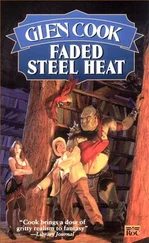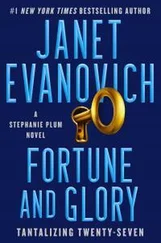Albert turned the corner and walked past a derelict space, a living memory of the Blitz, where a German bomb had flattened all below it. A street party and happy celebrations now filled the site, children playing and adults celebrating, their Coronation party still in full swing and set fair to go on till late, or until the drink finally ran out. On Albert walked, under the railway arches and on to his place of work, a Victorian public house called the Live and Let Live.
The Live and Let Live was gearing up for a busy opening time, creatively decked out in bunting by Maurice the landlord and his wife Maria to celebrate the Coronation. It was a cosy, well lived-in establishment, filled with horse brasses, toby jugs, dark wood and the smell of tobacco and beer. Albert worked in the pub as a pot man, collecting glasses and helping out behind the bar. After years of working in the Royal Docks, where each morning the dockers would line up hoping for work on what was called the “Stones”, desperate to be picked out by a charge hand to join a gang to load or unload the waiting ships in dock, the relative security of the part-time pub work suited Albert just fine.
They knew Albert here and respected him, and the job brought Albert a little money, which helped. But most importantly, upstairs was a boxing gym, an important link for Albert to the noble art and his glorious past.
After a quick “Evening all”, Albert headed towards the boxing gym. The loud voice of Maria, feisty wife of the landlord, followed him up the stairs.
“Albert, don’t you be long! It’s getting busy, I’m gonna need some help!”
Upstairs, three or four hopefuls were punching bags, while in the ring itself, two men were sparring under the watchful eye of trainer and gym owner Patsy O’Neill.
“Albert,” said Patsy in his usual ferocious bark. “Will you come and teach these girls to punch?”
“Not today Pat, I think that day has long gone,” Albert replied.
Patsy pushed his ham-like hands through his receding curly hair and glared at the sparring pair. “Now that’s a champ, boys. I’m telling you, that boy could fight.”
“Yeah,” Albert replied, “before these two were born, when dinosaurs roamed the Hackney Marshes. Any glasses up here from last night?”
Albert went back down to the bar with a few wayward empties. It was filling up, locals drifting in and pints being pulled. The regulars were mainly dockers, local men with stories to tell, decked out in a collective uniform of flat caps, leather jerkins and strong arms. A couple of ladies, a little past their prime, were sipping Guinness and gossiping at a corner table. Over by the door, Dolly played her heart out on the piano. The clientele sang along, not always in the same key, but with gusto. These were Albert’s people, salt of the earth, working-class folk, and he moved around the smoke-filled room with the odd smile here and the odd conversation there.
But although most people knew Albert, he had always been a man of few friends. Some old mates had passed on, others had moved away to greener pastures in Essex and Kent: an exodus that would become the norm, as Londoners looked to better themselves and bring up their children in fresher and cleaner air. New towns were being planned to house them, towns like Harlow and Stevenage, but as far as Albert was concerned, he was East End born and bred and that was where he was staying.
At the bar of the busy pub, sat Black Lenny, Albert’s closest friend. Lenny had come over from Jamaica actually on a banana boat, landing at Southampton with the first influx of immigrants from the Caribbean, bound for the National Health Service, public transport and a new hopeful beginning. After working initially as a hospital porter, Lenny had scrimped and saved and was now the proud owner of a car repair shop, situated locally under the railway arches.
“Did you get that motor going yet, Len?” asked Albert.
“Yes Albert, the old banger is running sweet now, ticking over.”
“A bit like me then Lenny, an old banger ticking over.”
The men, although from different worlds, got on like a house on fire. Albert endured endless ribbing from Lenny about the West Indies’ recent cricket victories over England, with “Ramadhin should be made the king of the Caribbean” being Lenny’s constant observation. Albert enjoyed the stories Lenny would tell him of a distant world that he would never visit, of golden beaches and a sun-drenched Jamaica, while Lenny would love hearing stories and memories from Albert about his glory days and the boxing world. Albert was often reluctant to go down memory lane with its many dark shadows and painful yesterdays, but if Lenny pushed hard enough, the effort was worth it. After all, Albert was a man with an impressive past and stories to tell.
“Last orders!”
The ring of the bar bell finally came, followed again by a more determined “Last orders please!”
Albert rounded up the glasses, helped to wash up, collected his wages and with a “Night all”, headed for home. The rain outside seemed to sparkle on the cobblestones, softly lit by street lamps that did their best to penetrate the misty night and the damp air. The remnants of the earlier street parties were now few and far between, just a few folks persevering by the dying embers of a celebratory bonfire, talking and laughing.
Back inside the flat, Albert put another shilling in the hungry meter, lit the blue-flamed gas fire and turned on his precious gramophone. He owned a large collection of classical records (this new “rock ’n’ roll jungle music” wasn’t for him), and after choosing Elgar’s Cello Concerto, he sat down to reflect on the day.
The Coronation celebrations reminded him of the celebrations when the war had ended and Britain danced in the streets. He and Vera hadn’t danced. Instead they had looked to the sky as if searching for Tommy, hoping he could see that his sacrifice was not in vain. Tonight, with patriotism on every street corner, Albert thought about his son, killed in action just weeks after joining the fight for freedom. How full of life he looked in the photograph, sitting there on Albert’s sideboard. There in his uniform, so proud to fight for King and Country.
Although not a sentimental man, past adventures, good and bad, would sometimes engulf Albert. This was one of those times. Memories of the women and children he had tried to save as part of the home guard – their screams, tears and desperation – still cut like it was yesterday. He had been too old to enlist, turned away by the army, but had done all he could at home in the burning streets of London. Sometimes it hadn’t felt like enough.
Broken from his thoughts by the clock striking twelve and Rocky’s twittering, Albert decided it was time to clear his head of the dark shadows that often seemed insurmountable in the wee small hours. Covering up the budgie’s cage for the night and turning off the gas fire and gramophone, his usual late cup of Ovaltine in hand, Albert went to bed.
*
The next morning, awoken by the foghorns of the ships gliding through the foggy dockyards, Albert rose, had a cup of tea, a wash and brush-up and then, as usual, set off for what had become his morning ritual: a walk round the park, feed the ducks, then back home for breakfast or, if he had money, to the local cafe for a full English.
Albert cherished this oasis, where the birds of London did their best to sing as the sun broke through the late-morning fog. As he walked his usual path armed with a paper bag filled with stale bread, the dark memories of the night before melted away in the morning light.
Crossing the small bridge that led down to the lake, he saw a gang of five or six likely lads having a kick-about. He smiled to himself as he watched their antics. Their lack of footballing prowess was amusing, a toe punt here and a sliding tackle there and many wayward passes. “Not much of a career in football there,” he thought.
Читать дальше












